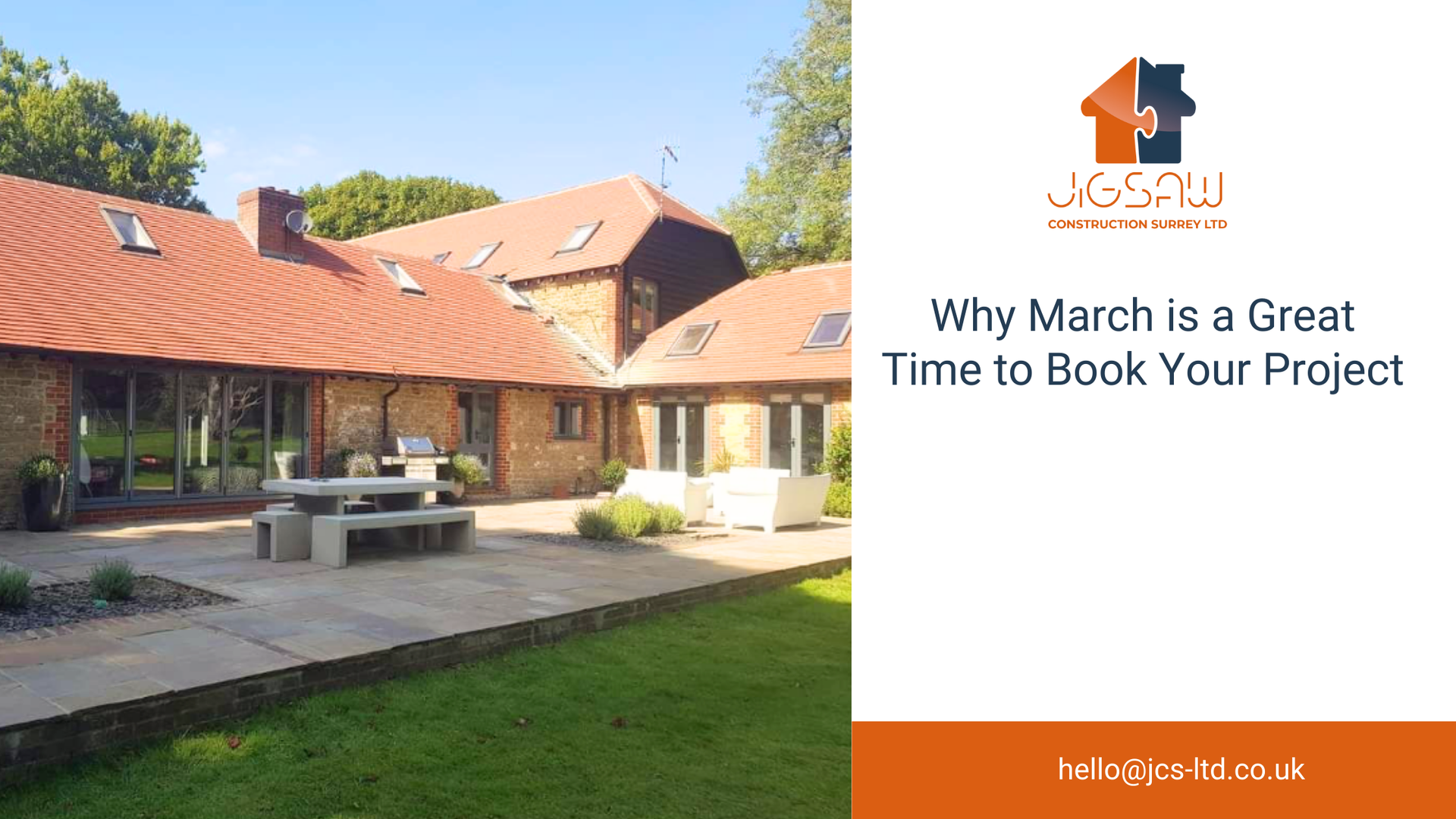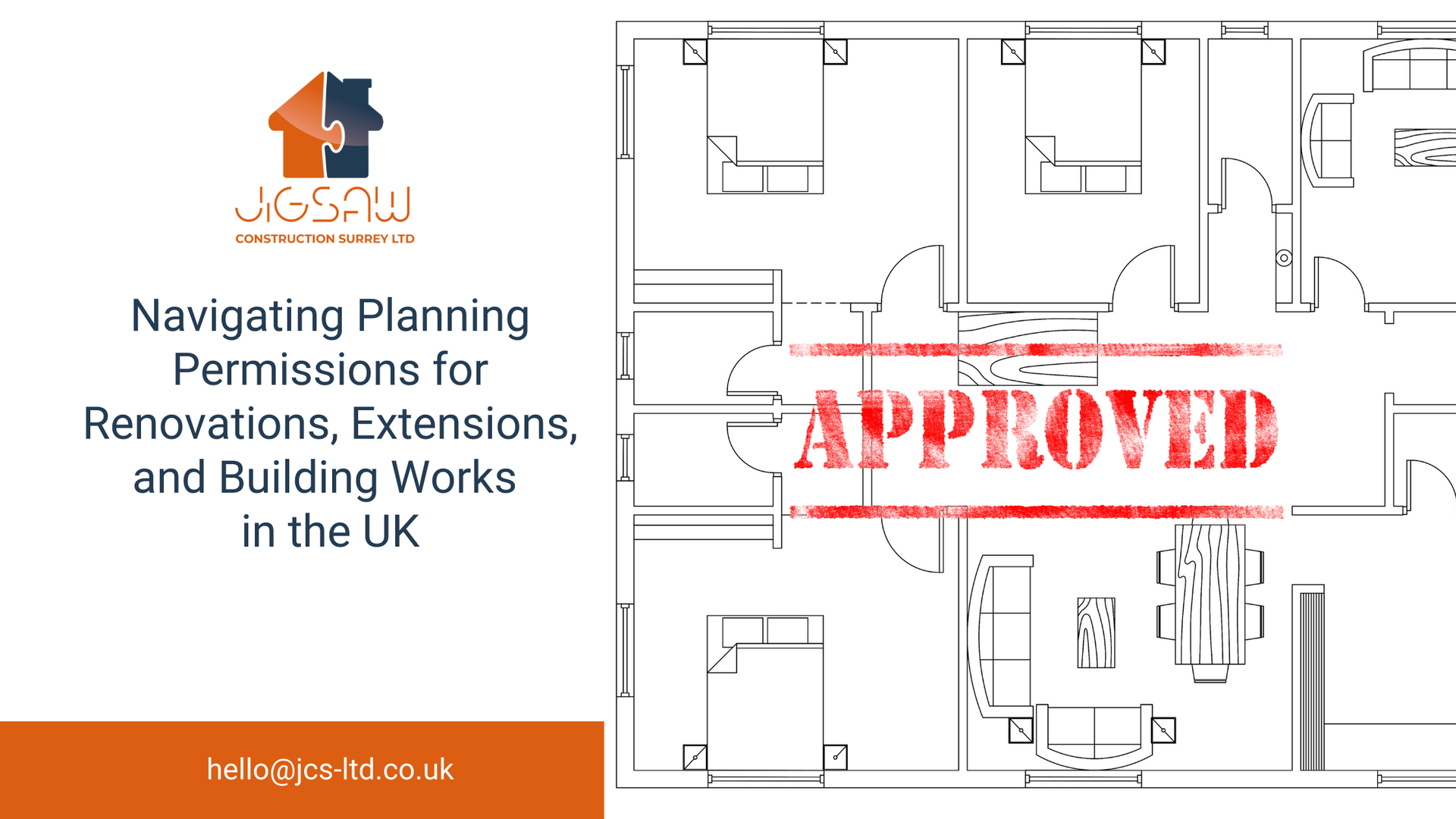
Connect with Jigsaw Construction
Getting the Right Team Together for Your Home Project
Getting the Right Team Together for Your Home Project

Embarking on a home construction or renovation project is an exciting journey, but it can also be a complex process. One of the most critical factors for success is assembling the right construction team. Whether you’re building a home from scratch, adding an extension, or undertaking a major renovation, having the right professionals in place ensures the project runs smoothly, stays on budget, and meets your expectations. In the UK, a successful home project often involves three key players: the structural engineer, the architect, and the building team.
Here's how to bring them together effectively.
1. Start with Your Vision
Before assembling your team, it’s essential to have a clear idea of your goals. Consider:
- What do you want to achieve? A larger space, modern aesthetics, or improved functionality?
- What is your budget? This will influence the scale of your project and the professionals you can afford to hire.
- What’s your timeline? Be realistic about how long planning and construction will take.
Having a well-thought-out vision ensures you can communicate effectively with your team and helps avoid costly misunderstandings down the line.
2. Hiring an Architect
An architect is often the first professional you’ll need to hire. They’ll bring your vision to life by creating detailed designs that align with your goals and comply with UK building regulations.
How to Choose the Right Architect
- Qualifications and Experience: Look for architects registered with the Architects Registration Board (ARB) or members of the Royal Institute of British Architects (RIBA).
- Portfolio: Review their previous work to ensure their style matches your vision.
- Local Knowledge: Architects familiar with your area will understand local planning requirements and restrictions, which can streamline the approval process.
- Communication Skills: A good architect listens to your ideas and provides practical solutions to meet your needs.
Architect's Role
- Design Development: Creating sketches, detailed plans, and 3D visualisations.
- Planning Permissions: Managing applications to your local council.
- Project Oversight: Some architects offer project management services to ensure the build aligns with their designs.
3. Engaging a Structural Engineer
While architects focus on design and aesthetics, structural engineers ensure your project is safe and structurally sound. They calculate load capacities, design supports, and assess whether your building can handle the proposed changes.
When Do You Need a Structural Engineer?
- Building an extension or additional floors.
- Removing or altering load-bearing walls.
- Making significant changes to the roof or foundation.
- Constructing in areas with challenging conditions, such as flood zones or clay soil.
How to Find the Right Structural Engineer
- Professional Accreditation: Look for engineers registered with the Institution of Structural Engineers (IStructE).
- Experience: Choose someone with expertise in residential projects.
- Collaboration Skills: They’ll need to work closely with your architect and building team to ensure designs are practical and feasible.
4. Selecting Your Building Team
Your building team is crucial to turning designs and plans into reality. Choosing the right team ensures your project runs smoothly, stays on budget, and meets your expectations. At Jigsaw Construction Ltd, we take pride in being the trusted choice for construction projects in Surrey, Hampshire, and West Sussex.
We specialise in delivering high-quality results including extensions, conversions, timber frame builds, roofing, and renovations. Since 2017, we’ve built a reputation for exceptional workmanship, transparency, and reliability, earning glowing recommendations from satisfied clients. Our approach prioritises clear communication, with regular updates and budget reviews to keep projects on track, while maintaining the highest health and safety standards. From the initial consultation to the final handover, we tailor every project to our client’s unique needs, ensuring flawless finishes and dependable results.
5. Coordinating Your Team
Once you’ve hired your architect, structural engineer, and building team, ensuring effective communication between them is vital. Miscommunication can lead to delays, errors, and additional costs.
Best Practices for Coordination
- Establish Clear Roles: Define each team member’s responsibilities to avoid overlaps or gaps.
- Regular Meetings: Arrange frequent updates with all parties to track progress and address concerns.
- Document Everything: Keep written records of agreements, changes, and schedules.
- Consider a Project Manager: Hiring a project manager can simplify coordination and reduce stress. Jigsaw Construction Ltd can take the stress of co-ordinating your team from you as we can also manage the project from start to finish on behalf of our clients,
6. Understand Legal and Regulatory Requirements
Every UK home project must comply with building regulations and, in many cases, requires planning permission. Your architect and structural engineer will play a key role in ensuring compliance, but it’s your responsibility to ensure the necessary approvals are obtained before construction begins.
Key Regulations to Consider
- Planning Permission: Required for significant changes, such as extensions, changes to listed buildings, or new builds.
- Building Regulations Approval: Ensures safety, energy efficiency, and accessibility.
- Party Wall Agreements: Necessary if your project affects shared walls with neighbours.
As Project Manager, Jigsaw Construction Ltd will ensure your project is compliant with all relevant legislation.
7. Plan for the Unexpected
Even with the best team in place, unexpected challenges can arise, from supply chain delays to unforeseen structural issues. Build a contingency fund (typically 10-15% of your budget) to handle these surprises without derailing your project.
In Summary:
Bringing together the right construction team is the cornerstone of a successful home project. By carefully selecting an architect, structural engineer, and building team—and ensuring they work collaboratively—you can turn your vision into reality while avoiding unnecessary stress and expense.
Jigsaw Construction Ltd will manage all of this for you bringing together the best team to deliver your project with quality, care and clear communication. Get in touch to find out more https://www.jcs-ltd.co.uk/#ContactUs



